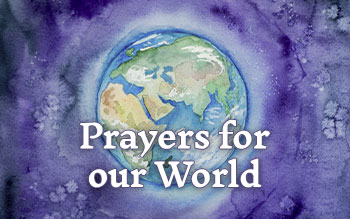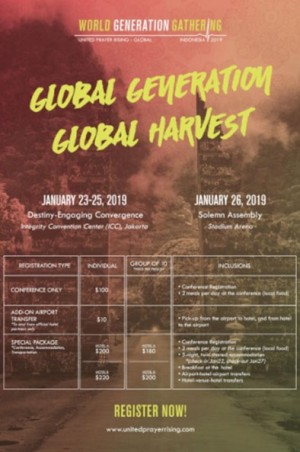Displaying items by tag: Asia
China denies Uyghur detention camps
Western nations including the USA, France, and Germany have called on China to close down detention camps in the western region of Xinjiang which activists claim hold as many as one million Uyghurs and other Muslims. China, however, has described these criticisms as ‘seriously far away from facts’. Its vice minister of foreign affairs, Le Yucheng, told UNHCR in Geneva that his country protects the freedoms of its 55 ethnic minorities. China has said Xinjiang faces a threat from Islamist militants and separatists, and rejects all accusations of mistreatment and denies mass internment, although it states that some citizens guilty of minor offences are being sent to vocational centres to work. Mr Le, referring to Xinjiang, said: ‘Stability is most important, prevention should be put first. Setting up the training centres is a preventative measure to combat terrorism.’
India: nuclear submarine’s first voyage
Prime minister Narendra Modi says the first successful voyage by India’s home-built nuclear submarine is a ‘warning for the country's enemies’. The INS Arihant recently completed a month-long ‘deterrence patrol’, meaning India now has the capability to fire nuclear weapons from land, air and sea. Mr Modi, a Hindu nationalist, tweeted it was a ‘fitting response to those who indulge in nuclear blackmail’. In a speech televised nationwide, he told the submarine’s crew, ‘Amid an increase in the number of nuclear weapons in our surroundings, a credible nuclear deterrence is extremely important for our country's security’. His words are a thinly-veiled reference to India's neighbours, China to its north and its traditional enemy, Pakistan, to the west. The often volatile relationship with Pakistan has cooled even more noticeably since Mr Modi took office in 2017 and adopted a more assertive strategy towards its arch-rival.
Yemen: vision of ceasefire
Pentagon chief James Mattis said the US had been watching the conflict ‘for long enough’, and believes Saudi Arabia and the United Arab Emirates are ready for talks. The comments came as the military coalition deployed over 10,000 new troops towards a vital rebel-held port city in the run-up to a new assault. Mattis said, ‘We have got to move toward a peace effort here, and we can't say we are going to do it sometime in the future. We need to be doing this in the next thirty days.’ His comments came at the US Institute of Peace, whose president, Kevin Martin, said that the Yemen needs peace right now, and even thirty days to halt fighting is too long. He added, ‘I think the Trump administration is trying to get out ahead of a stampede. Congress, public opinion and the media have all turned very much against this war.’ See also the UK article ‘Boris Johnson and the Saudis’.
Indonesia: cause of plane crash not yet known
Indonesia has ordered inspections on all its commercial Boeing 737-Max 8 planes, after one crashed into the sea minutes after taking off from Jakarta, with 189 people on board, on 29 October. There are no known survivors. Searchers have recovered debris, bodies and personal items. The flight recorder (‘black box’) has now been located, which may shed light on the mystery of why it crashed, considering that it was almost brand-new. It seems that the pilot asked to return to Jakarta airport before losing contact with air traffic control. A log obtained by the BBC showed the plane had experienced technical problems on the previous day. Indonesia, a vast archipelago, is heavily reliant on air travel but many of its airlines have a poor safety record.
Pray for Pakistan: Asia Bibi acquitted
Asia Bibi, a young mother of five who has spent 8 years behind bars unjustly accused of blasphemy against Muhammad by Muslim neighbors, has now been finally acquitted by Pakistan's Supreme Court of the charges against her. Friends who monitor the situation there now write:
"This is indeed good news, but now Asia Bibi, her whole family and the whole Christian community need much prayer cover, indeed anyone involved in this case, the judges, the lawyers, also the government. Several groups have already sworn to take revenge on the Christian community. One of our team members in Lahore was visiting family across the city because of a death in her family. She is caught there and cannot return as there are threats of riots and people have been told to stay inside their houses."
Another ministry leader who has spent his life working in that region wrote: "This is an important time to pray for Pakistan for different reasons. Now the Christian community is in danger of getting attacked and the extremists want to see revenge, but we should also pray that the government would back up the decision of the Supreme Court. This was a very encouraging and courageous ruling. There are many others still in prison for the same wrong charges."
- Please pray that the police and authorities will be able to keep control of this situation and stop any rioting by the Islamic extremists of which there are many who will be very angry about this ruling.
- Pray that this court decision will not result in bloodshed which is always possible in this spiritual dark, majority Muslim country.
- Pray that the blasphemy law which enables such false accusations, often attended by terrible violence against the Christians, will be rescinded and others who have been imprisoned unjustly will be acquitted and released.
- Pray for His peace to settle over this land, for the protection and empowering of the Christian community, and that the oppressive spiritual bondage will be broken over Pakistan so that many of the majority will come to Christ.
More info: https://www.bbc.com/news/world-asia-46040515
Persecution in China intensifies
“Earlier this year we sent out a newsletter entitled "A Special China Issue," which told of the massive and brutal persecution of Christians underway in China. Many people were shocked by what we shared, and some even doubted if it was true, as other sources weren't reporting the trouble.
In the following months it became clear that God's people in China are not merely going through a regular season of hardship, but a major effort is underway to completely control the Church, backed by new technology that creates challenges to the Body of Christ that have never been encountered before. In this newsletter we will update you on the crisis in China, while attempting to answer some of the common questions people have asked.
What's the Latest News from China?
In recent months the government has markedly increased the pressure on Christians throughout the country. We received an unconfirmed report from a long-term China missionary stating that 314 house church Christians have been killed in recent months, and hundreds more are missing. Most house church leaders have gone into hiding and have disconnected their phones and other devices because of the incredible surveillance capabilities of the state.
Thousands of house churches (which are considered illegal in China) have been closed. Reflecting the actions of Mao's Red Guards in the 1960s, religious symbols such as crosses and Scripture posters have been torn down and replaced by flags of China or portraits of President Xi Jinping.
Note: Our website version of this newsletter includes several important links to articles and videos to help people understand what's going on in China and how best to pray. Please visit www.asiaharvest.org for more detailed information.
Links to articles:
Updated: Large Beijing house church banned as China continues Christian persecution
Inmates initiate hunger strike amid mass incarceration crackdown
China Uighurs: Xinjiang legalises 're-education' camps
Leave no dark corner
Some congregations have been ordered to sing the national anthem or other patriotic songs at the start of their services. Others have been ordered to install government facial-recognition surveillance cameras inside their worship halls, and those that have refused to comply have been forced to shut down.
Landlords who rent buildings to Christians are being heavily fined by the government, with new laws allowing fines of between 20,000 to 200,000 Yuan (almost US$30,000). This has created a climate of fear and suspicion, and thousands of fellowships have been forced out of the premises they were renting. On the streets, the police have the power to stop and search anyone they wish and to check their phones and other devices for content they deem a threat to society. These threats may include the presence of a Bible app or visits to Christian websites, or any communication considered unpatriotic.
The most severe persecution is occurring in the vast Xinjiang region in northwest China. In recent years a promising church movement had emerged among the Uyghur, Kazakh and Kirghiz people groups, but most of the church leaders have been arrested and taken to concentration camps in the desert. Reputable news organizations estimate at least one million people are being detained and tortured in those camps right now. Many suburbs in cities like Urumqi, Hami and Kashgar are now depopulated and countless buildings have been boarded up. Although this initiative was designed to target Muslims in border areas, almost all Uygur and Kazakh church leaders have also been taken away. The government doesn't care whether someone is a Muslim or Christian. It's all the same to them.
Spiritual Forces Behind the Persecution
While there are human reasons for the dramatic persecution, we should never lose sight of the fact that Satan and his fallen hosts hate God's people, and they never rest in trying to destroy them. We recently updated our Christian stats for all 2,866 cities and counties in China, and the end result was a marked increase since the last time we reviewed our figures. Currently, we estimate a total of 129.7 million professing Christians in China, of which 109 million are Evangelical believers. The Chinese government is fully aware of the explosive growth of the Church in China, and they are determined to stop it. They don't want China taking over from South Korea as the number one Evangelical country in Asia.
Political Ambitions
If you have read our Asia Harvest newsletters for some time you will know we don't usually mention politics at all, as our call is to equip the Church in Asia and not to be entangled by civilian affairs (2 Timothy 2:4). Our goal is not to favor one political system over another, but to see all people groups of Asia hear the Gospel of Jesus Christ. If one quote sums up what we think about politics, it would be this famous one from an economist in the last century: "Under Communism man oppresses man. Under capitalism it's the other way around."
To understand the human reasons of why China is so determined to destroy the Church, however, it's helpful to grasp the historical background behind China's geopolitical ambitions. Starting in the 1800s, China was dominated by foreign powers that carved up various parts of the country and exploited their natural resources. The Chinese consider this the darkest period in their history, and have labelled it "The century of humiliation." Chinese resentment and desire to revenge their "loss of face" runs deep. Japan was one of the foreign nations that dominated China during this period, inflicting shameful cruelties on the Chinese people. A few years ago a survey in China found that 82 percent of respondents said China should launch a war with Japan before the end of this decade.
 In a bid to try to erase the painful memories of the past, China believes they have an opportunity to be the new world super-power, replacing the United States and the West. To achieve this lofty goal, President Xi Jinping has stopped at nothing to implement his "One Belt, One Road" initiative, which would result in China having the most powerful economy and military on earth. To help him succeed, earlier this year Xi was appointed ‘President for life'. Whereas often in the West we think in terms of months and years, the Chinese think in terms of decades and even centuries. They are not in a rush, and are determined to gradually work their way toward becoming the undisputed world power.
In a bid to try to erase the painful memories of the past, China believes they have an opportunity to be the new world super-power, replacing the United States and the West. To achieve this lofty goal, President Xi Jinping has stopped at nothing to implement his "One Belt, One Road" initiative, which would result in China having the most powerful economy and military on earth. To help him succeed, earlier this year Xi was appointed ‘President for life'. Whereas often in the West we think in terms of months and years, the Chinese think in terms of decades and even centuries. They are not in a rush, and are determined to gradually work their way toward becoming the undisputed world power.
The Communist leaders trying so desperately to implement their global vision are God-hating atheists, and they are determined not to let anyone or anything stand in their way. They want absolute power over what people do, say and think, and Christians, Muslims, or anyone else who may pose a threat to their goals are being subdued, controlled, or eradicated. These are the reasons behind the current campaign to wipe out the Church in China. Mao tried to do this from the 1950s to 1970s, and Xi Jinping seems determined to finish the job that Mao failed to do….
Read the PDF Version of this Newsletter
Let’s continue to pray for a change of policy by the Chinese government that will permit religious freedom. Pray for the encouragement and strengthening of our brothers and sisters in Christ and that the Lord will use the persecution of His people to greatly expand the ministry of the Church and the turning to Christ even more huge numbers of this most populous nation.
United Prayer Rising Events
UPRISING Global: Jakarta, Indonesia - January 23-26, 2019 (WYPA)
World Generation
Jakarta, Indonesia, January 23-26, 2019
Please pray for and consider taking part in this world youth prayer assembly in January. Here is a video and details to register. You will want to forward this to younger generation believers but anyone is welcome.
‘Pray for me', says Aasia Bibi
Aasia Bibi, a Christian woman on death row in Pakistan, has urged Christians in the UK to pray for her. The message was conveyed by her husband Ashiq, who has travelled to the UK to highlight her plight. He said to Premier, ‘She told me that the community must remember her in their prayers because this is an international country. I need international pressure for the release of Aasia Bibi.’ He said her incarceration since 2009 has spelt nine years of suffering for the whole family. He added, ‘She always has said that Jesus is her life and she is living in the name of Jesus, and trusting that he will help her.’ For further information about Aasia’s case, see
India: trafficking and the Kerala floods
Huge monsoon floods have left hundreds dead and millions displaced in the southern state of Kerala. In the turmoil following a disaster of this magnitude, millions of people have lost everything and are now vulnerable to human trafficking unless they can be protected. Soon after the massive floods began, International Justice Mission started working with the Kerala chief minister’s office and senior law enforcement officials on a robust, six-month anti-trafficking project to help local officials protect the most vulnerable. They initiated a top-down human trafficking intervention called Surakshita Keralam (Safe Kerala), and have now trained over 650 local government officials on how to spot signs of human trafficking and assist families in need. The next phase will be to monitor local officials’ efforts to do assessments of flood-affected communities, find those at risk, and develop plans for their long-term protection. Pray for God to bring success to all aspects of these rehabilitation initiatives.
Indonesia: Christians sing despite devastation
As Open Doors workers walked through a village in Indonesia, surrounded by the rubble and destruction left behind by the recent earthquake, they could hear voices singing ‘Hallelujah’. Coming round the corner they found a group of believers standing under a tent, singing their praises to God. It is incredible to see the faith of our brothers and sisters in Indonesia, even in the midst of the most difficult circumstances. The death toll following the recent earthquake and tsunami has now exceeded 2,000, and many thousands more have been left homeless, their houses destroyed. On top of that, Christians face discrimination because of their faith as aid is distributed. A Muslim-majority village is located next to a Christian-majority one. But when military tents and other relief aid were sent to the victims, only a small amount of instant noodles were given to the Christians. Discrimination is widespread.









